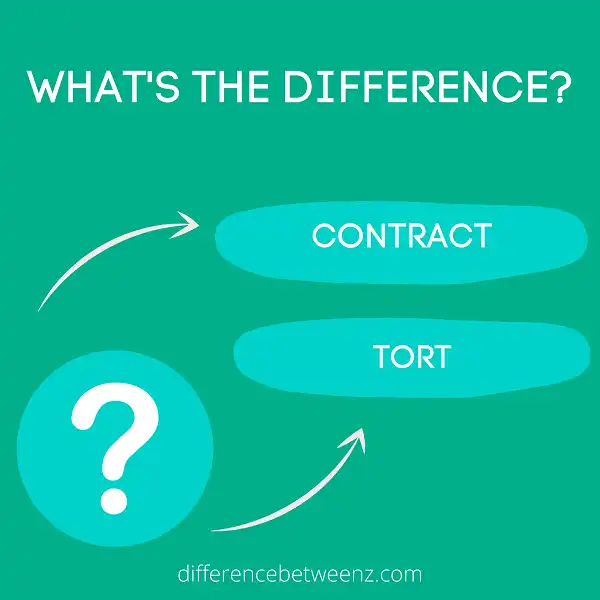People often use the terms contract and tort without realizing there is a big difference between the two. In this blog post, we will explore the key differences between contracts and torts. We will also look at some examples to help illustrate these concepts. By understanding the difference between contracts and torts, you can be better equipped to make informed decisions about your legal rights and obligations.
What is a Contract?
A contract is an agreement between two or more parties that creates obligations that are enforceable by law. A contract can be written, oral, or implied by the actions of the parties involved. The main element of a contract is an offer, which is an expression of one party’s willingness to enter into an agreement. The offer must be accepted by the other party in order to create a binding contract. Contracts can be made for a variety of purposes, including the sale of goods or services, the exchange of property, or the performance of work. In order for a contract to be legally binding, it must contain certain essential elements, such as an offer, acceptance, consideration, and a meeting of the minds. If these elements are not present, the contract may be voidable or unenforceable.
What is a Tort?
A tort is a civil wrong that results in physical or economic damages. Torts can be intentional, such as assault or battery, or they can be the result of negligence, such as a car accident. When a tort is committed, the victim can file a lawsuit against the perpetrator to recover damages. One of the most common types of torts is personal injury. This occurs when someone is injured due to the negligent or intentional actions of another person. For example, if you are injured in a car accident that was caused by someone else’s recklessness, you may be able to file a personal injury lawsuit against that individual. Other common types of torts include property damage, defamation, andintentional interference with contractual relations. No matter what type of tort has been committed, the victim typically has the right to file a lawsuit against the responsible party. If successful, the victim may be awarded compensatory damages, which are designed to reimburse them for their losses. In some cases, punitive damages may also be awarded in order to punish the wrongdoer and deter future misconduct.
Difference between Contract and Tort
A contract is an agreement between two or more parties that creates legally binding obligations. A contract can be written, oral, or implied by the actions of the parties. A tort is a civil wrong that occurs when one party unfairly causes harm to another. Torts can be intentional or unintentional. Unlike a contract, a tort does not require an agreement between the parties. Instead, it is based on the principle that people should take reasonable care to avoid causing harm to others. Although contracts and torts share some similarities, they are two distinct legal concepts with different implications for businesses and individuals.
Conclusion
Tort law is the body of law that covers civil wrongs, or torts. A tort can be committed intentionally or unintentionally, and often results in harm to another person or their property. Contract law, on the other hand, governs agreements between people – both parties must agree to the contract for it to be valid. Contracts can be oral or written, but they always have specific terms and conditions which must be met for either party to sue for breach of contract. It’s important to understand the difference between tort and contract law if you want to protect yourself from liability (or take someone else to court).


